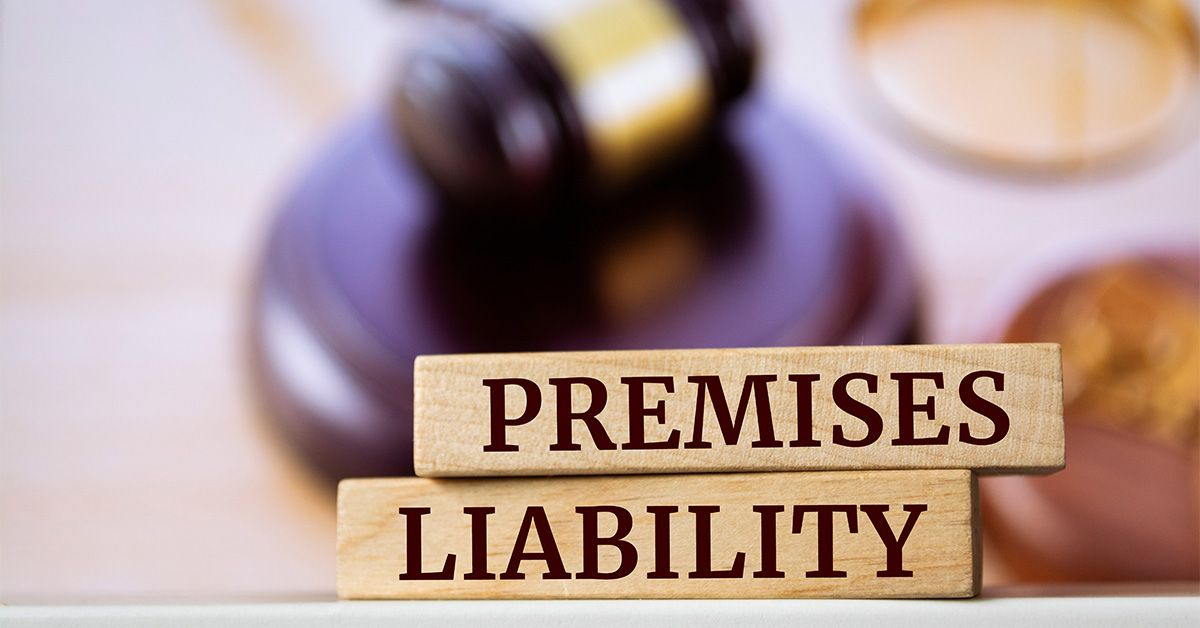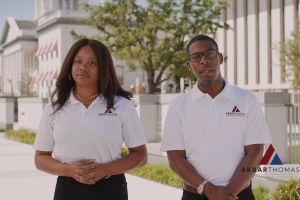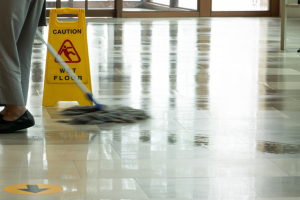Akbar Thomas Resources and Education

What is Premises Liability in Florida, and Who is Responsible?
While you probably understand the fundamental goal of personal injury law to provide compensation for those injured by the recklessness, negligence, and/or malpractice of others, you might be less familiar with the premises liability component of the law.
Simply put, premises liability comes into play when someone is injured on another person’s property due to unsafe or dangerous conditions. Under the law, property owners and managers have a duty of care to ensure that their property is safe, and face liability for damages if an injured person can prove negligence in this regard.
While it sounds clear cut, legal nuances abound in premises liability law, which makes it imperative to consult with an experienced personal injury lawyer if you’ve been injured while on someone else’s property. And Mutaqee Akbar of Tallahassee’s Akbar Thomas Law would advise you to act quickly in such situations to help preserve potential evidence and build a solid case. Let’s further review Florida’s premises liability law to better understand its nuances and what issues must be addressed to establish a valid claim.
Common Types of Premises Liability Cases
Premises liability cases can be filed whenever a property owner or leaser fails to uphold their legal duty of care. While this duty of care requires them to maintain safe premises, it also requires them to provide adequate warning of known hazards. These two duties are independent, and defendants can argue that they provided sufficient warnings about the injury-causing danger(s). However, if the defendant failed to make a concerted effort to eliminate the hazard, courts will often reject this defense if possible. The most common types of premises liability cases filed in Florida include the following:
- Slip and falls
- Dog bites
- Swimming pool accidents
- Injury-causing construction and design defects
- Maintenance-related accidents
- Criminal assaults (negligence in providing adequate security)
Status of the Injured Party Plays a Role
Florida law recognizes four categories of persons who may file a premises liability suit:
- Invitees—those invited onto the premises by actual invitation or by implication (i.e., customers at a business).
- Licensees—people neither invited nor prohibited from being on the property.
- Adult trespassers—those who go onto a property without permission.
- Child trespassers—some of whom are recognized under the law as a special class of plaintiffs based on having been enticed onto the property by a unique feature that the owner should have identified as being attractive to children.
Most premises liability cases involve invitees because the property owner’s duty of care standard is highest for this plaintiff category. Property owners have a much lower duty of care standard for licensees and trespassers, except child trespassers who may have been enticed onto the property.
Establishing Proof in a Premises Liability Case
Premises liability cases revolve around the property owner’s duty of care, which is evaluated on a subjective basis to determine whether the property owner was negligent in reasonably maintaining the safety of their property. The Florida Supreme Court’s Standard Jury Instruction 401.4 defines this negligence as “the failure to use reasonable care, which is the care that a reasonably careful person would use under like circumstances. Negligence is doing something that a reasonably careful person would not do under like circumstances or failing to do something that a reasonably careful person would do under like circumstances.”
Under Florida law, negligence also requires that the cause of the accident was foreseeable. If the property owner could not foresee the potential threat to an injured party’s safety, they cannot be held liable for the damages to the injured party.
Court May Consider Comparative Negligence
Florida personal injury law allows courts to consider comparative negligence liability, meaning injured parties can seek damages even if they were partially at fault for their injuries. When the defense can successfully prove comparative negligence, juries apportion damages based on what percentage of the fault lies with the plaintiff. Thus, if a jury determined that an injured party was equally—or 50% responsible—for $60,0000 worth of damages incurred in an accident, they would award the plaintiff half of the damages, or $30,000.
Consult with Akbar Thomas Law on Your Premises Liability Case
If you believe that you’ve been injured on a residential or commercial property due to the negligence of the owners or property managers, you should consult with a personal injury lawyer as soon as your health allows in order to determine liability and secure evidence. To the extent possible immediately after the accident, collect the contact information of any witnesses, take photographs of the accident scene and/or cause, and write down all actions taken before, during, and after the accident. Also, make sure you keep all medical receipts and any information relating to supplementary accident costs.
With more than 20 years of practice in Tallahassee, Akbar Thomas Law’s personal injury legal team stands ready to assist you with your premises liability claim. To learn more, contact us today at 850-383-0000 or initiate a conversation with our chatbot.

